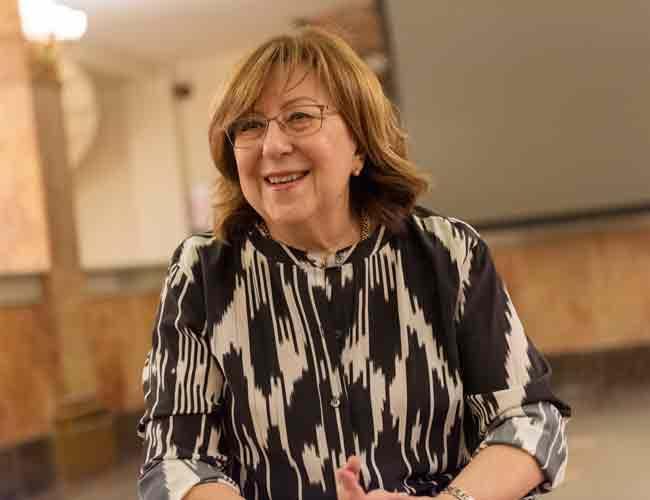
Turkish professor Zehra Sayers has received the 2019 Award for Science Diplomacy, presented by the American Association for the Advancement of Science (AAAS), for her success in bringing scientists from eight Middle Eastern countries together.
The group united under the same roof to found a CERN-like laboratory called Synchrotron-light for Experimental Science and Applications in the Middle East (SESAME).
“Scientists and officials from countries we think would normally not come side by side gathered together for this laboratory. The aim was for scientists from different countries and different fields to come together and work. After all, CERN was founded after World War II to bring French and German researchers together,” Sayers told daily Hürriyet.
“With me, four more scientists who played a major role in the establishment of SESAME will receive awards as well but I am the only woman and only Turk amongst them,” she added.
The accomplished professor said that around 20 years ago, a group of scientists had decided to found a CERN-like research center for Middle East.
“Back then, I was working in a synchrotron laboratory in Germany. Then, Professor Ercan Alp had reached me for this project and I became a founder of the laboratory,” she added.
Works for SESAME started in 1997, the building was completed in 2008 and was inaugurated by King Abdullah II of Jordan in 2017, Sayers said.
“Delegates from member countries, including a representative from Turkish Atomic Energy Authority, Fabiola Gianotti, the CERN director-general, [former] Director-General of UNESCO Irena Bokova and European Commissioner Carlos Moedas had participated in the opening ceremony,” she said.
“All member countries contribute to the budget,” said the professor.
Sayers stressed that synchrotron is significant such that it offers a wide range of research area from archeology to pharmacology.
Synchrotron makes looking at the three-dimensional structure of the molecules in our body possible, she stressed.
“The Middle East is a boiling cauldron, so it is very important to try to get people from different countries closer to science. Turkey is also one of the countries which took the lead in this project. We are here as a founding country,” she added.
Sayers was also the chair of SESAME’s Scientific Advisory Committee for 16 years.
Members and founder countries of SESAME includes Turkey, Iran, Israel, the Palestinian Authority, Jordan, Pakistan, Egypt and Cyprus.
The laboratory opened its doors to member countries’ scientists in 2018.
Sayers will receive her award in the U.S. capital Washington D.C. on Feb. 15.